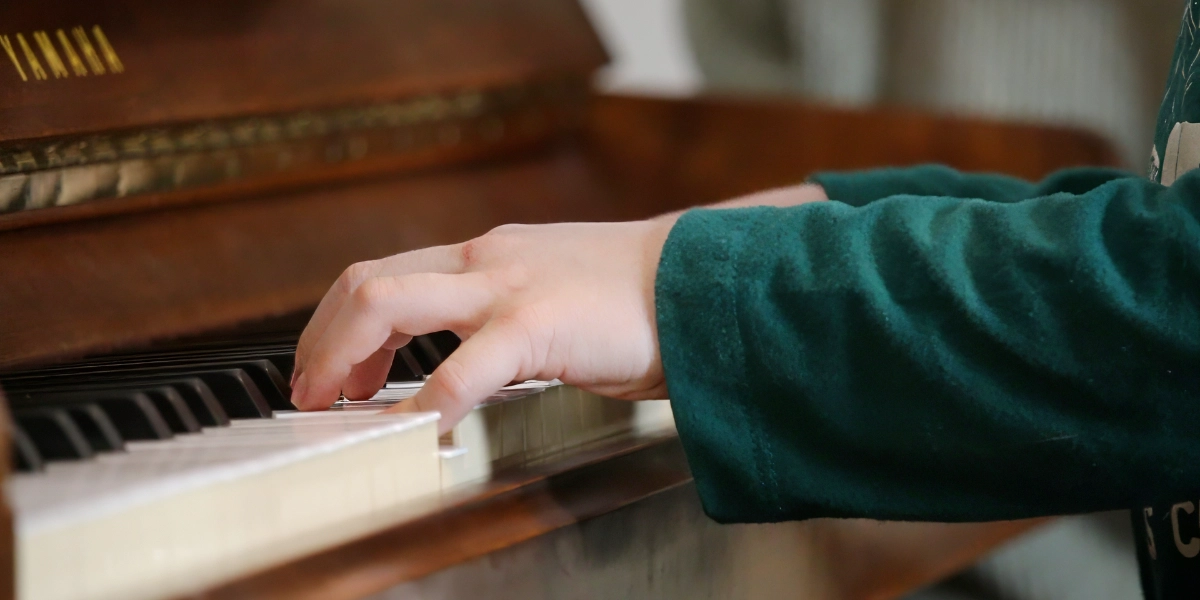The Benefits of Learning Piano for Children
Piano lessons offer more than just music—they help children build life skills that support emotional, academic, and personal development.
Whether your child is just starting out or already musically inclined, piano lessons can support confidence, focus, coordination, and well-being. Below are five powerful ways piano study can benefit young learners.
Improved Coordination
Playing the piano requires students to use both hands independently while reading music and maintaining rhythm. This process strengthens neural connections and enhances fine motor skills and bilateral coordination, which benefit other activities like handwriting and sports. [source]
Strengthened Memory
Memorizing music and recognizing patterns improves both short- and long-term memory. Children with musical training often perform better on memory tasks, which can boost academic achievement in subjects like math and reading. [source]
Increased Confidence
Learning and performing music helps children build self-esteem. Whether it's learning a new piece or performing in a recital, the process teaches persistence and gives students a sense of achievement. [source]
Better Concentration
Piano study improves attention span and the ability to concentrate. The focus required in practicing music translates into stronger concentration in school and other areas of life. [source]
Mental Health Benefits
Music is a powerful emotional outlet. Playing the piano has been linked to reduced stress and anxiety in children, offering a calming, creative way to manage emotions and improve overall well-being. [source]

